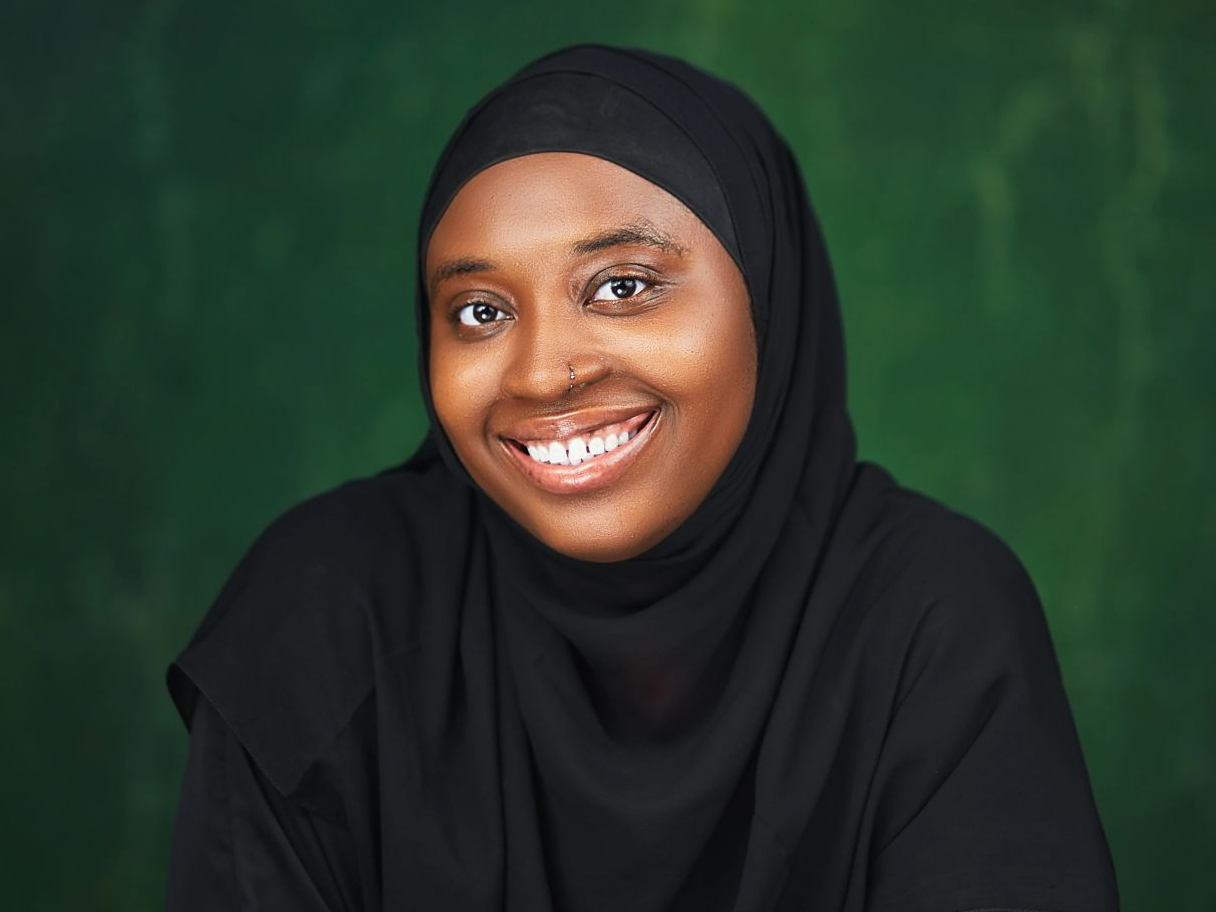Minutes after she left the gym, Ameenah Muhammad dashed home for prayers and later jumped on her interview scheduled for 4 p.m.
Despite the flurry of activities, she projected a sense of calm, palpable in her large smile as she steadied her computer’s webcam and went into a history of her childhood and her work through the years.
Prior to the wave of enlightenment now sweeping parts of northern Nigeria, gender norms were entrenched in most homes and communities. A girl was required to follow certain cultural rules—even to her disadvantage. A girl considered “privileged” was one who belonged to the rare home that thought differently about her value.
Even as acceptance grows for the movement pushing against early marriages and limited education for girls, victory is still strewn with hurdles.
It is this journey that Ameenah Muhammad has embarked on, even risking her reputation. She is the founder of the Connected Hands for Family Health and Empowerment Initiative (CHAFHEIN), a sexual and reproductive health initiative advancing women’s and girls’ rights.
Born in Minna, Niger State, Ameenah was raised by a non-conformist father who broke with this cultural conventions, carving an academic path for his children. While their peers looked forward to suitors, Ameenah and her siblings were raised to carve a future for themselves through education.
Ameenah recalls an incident when her close friend, barely 15, was assaulted by the man of the house when she was asked to check on her neighbour’s children. Her friend was scared of speaking up.
Ameenah was taken aback by her friend’s reaction, which she considered “fundamentally wrong.” She wondered, “How on earth will I be the person who has been abused, and I am the one carrying the shame?”
In her neighbourhood, she saw girls drop out of school because of unplanned pregnancies. One of them nearly died from an unsafe abortion. These stories condensed into a quiet rage within her.
Compared with the rest of the country, northern Nigeria contends with higher rates of teenage pregnancy, early marriage, and maternal mortality. Along with low education and poverty, experts have linked this trend to strong cultural and religious influences that shape attitudes towards contraception and family planning.
In some states in the Northwest and Northeast, as many as 78% of girls marry before the age of 18.
These realities frame the urgency of Ameenah Muhammad’s work, which is as much about shifting mindsets as it is about rendering service to girls at risk.
Ameenah, who has a degree in Biochemistry, draws upon her science background for her commitment to gender inequality and SRHR education. She always believed that SRHR education should move beyond clinics into the vulnerable communities grounded in repressive cultural myths.
In 2022, after a damning UNICEF report showing the death toll of Nigerian children that died from malaria, she and a small team visited an Abuja community, doling out funds, mosquito netting, and medication to residents. They also hosted sensitisation programmes in both Hausa and English.
A year after this outing, in 2023, the Connected Hands for Family Health and Empowerment Initiative (CHAFHEIN) became officially registered. The following year, she proceeded for her master’s in Public Health at Ahmadu Bello University, Zaria,
Before long, the organisation ventured into other northern states, including Sokoto and Jigawa. CHAFHEIN’s work spans underserved communities, with a particular focus on out-of-school adolescent girls.
According to the World Health Organisation, the formative years are the most critical time to provide accurate information about sexual health, consent, bodily autonomy, menstrual hygiene, and family planning.
In communities where early marriage is prevalent, Ameenah and her team work through a process of co-creation, engaging village heads, parents, and young people to weigh the pros and cons of long-established traditions.
In July 2025, she started a graduate trainee programme that provided instruction in communication, programme management, and finance to launch young people into the corporate world.
This initiative was borne out of her struggles with securing reliable employees to work in her NGO, an experience she described as “finding a needle in a haystack.”
Like most non-profit organisations, CHAFHEIN thrives off grants and partnerships. It’s received support from notable organisations such as the United Nations Population Fund.
For all the awareness campaigns, talking openly about sexual and reproductive health in parts of northern Nigeria can seem like walking a tightrope.
Ameenah’s advocacy has met with suspicion and criticism from close friends and Internet users. Many have slung mud at her, labelling her a “runs girl” to dissuade people from listening to her. “You’re preaching abortion right in case you get pregnant,” her detractors said.
More often than not, Ameenah tries to gloss over these uncharitable comments. She believes they’re targeted to strip away the moral authority.
Speaking of an intimate friendship she lost, Ameenah said, “It had to be either the work or the friendship, and honestly, one person out of seven billion? It’s a no-brainer.”
Institutional resistance has added to the mix, too. Convincing schools and community leaders is often an uphill battle. “Some gatekeepers see SRHR as a threat to morality,” she explains. In her early days of advocacy, she confronted a litany of rejections, which we eventually broke through with sheer persistence and patience.
Through her work, she has built a tight-knit community of like-minded women. They push each other forward, offering encouragement in moments of doubt and standing ready to “catch” one another if they fall. She describes this network as “invaluable” to her life and work.
After one of Ameenah’s mentorship sessions in Sokoto, a teenage girl realised unwanted touching was not normal but a form of abuse.
In Kaduna, an adolescent girl started her own small business after attending a training on reusable pads. “Seeing a girl make her first independent income is the kind of change you can feel,” Ameenah says.
“It’s opening up these days and I can assure you that the atmosphere,” she enthuses, “the way it was in 2019, is not the same thing with what it is right now in 2025. It has changed a whole lot.”
Ameenah Muhammad, the founder of Connected Hands for Family Health and Empowerment Initiative (CHAFHEIN), is dedicated to improving sexual and reproductive health (SRHR) and advancing women's and girls' rights in Northern Nigeria. Raised by a non-conformist father who valued education, Ameenah grew up witnessing gender inequality, early marriages, and unsafe pregnancies, which fueled her desire for change. Her organization focuses on educating underserved communities on sexual health, bodily autonomy, and family planning, often facing resistance from traditional gatekeepers and societal stereotypes.
Ameenah's advocacy, while met with criticism and suspicion, has led to tangible changes, such as adolescent girls in Nigeria recognizing abuse and starting small businesses. Registered in 2023 and supported by grants from organizations like the United Nations Population Fund, CHAFHEIN operates throughout northern states like Sokoto and Jigawa. Despite challenges, including securing reliable staff and confronting cultural opposition, Ameenah's work has fostered a community of like-minded women offering mutual support, illustrating a gradual shift in attitudes from 2019 to 2025.






